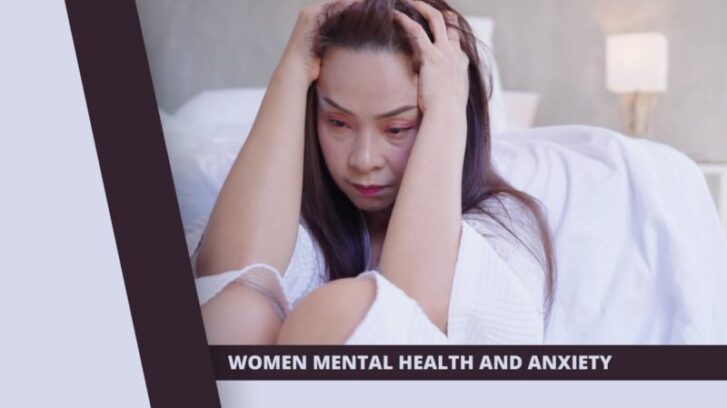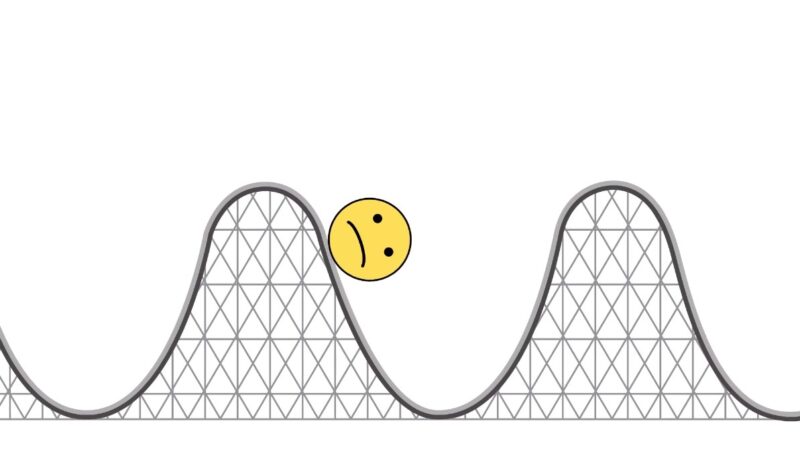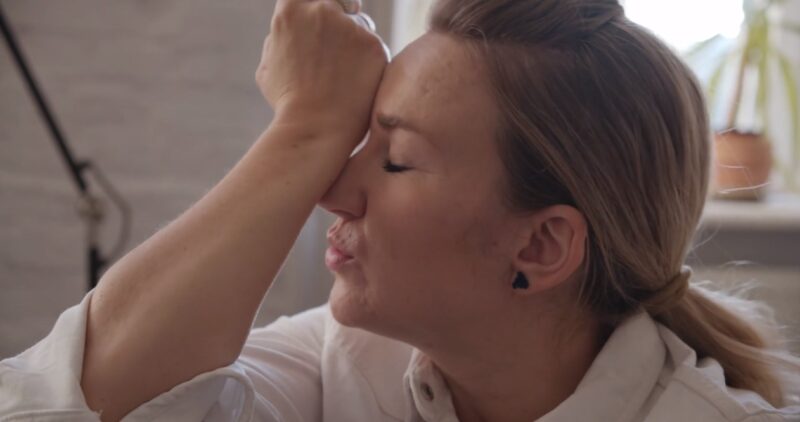It is a crucial aspect of overall well-being, yet it remains an often overlooked and stigmatized topic, particularly when it comes to women’s experiences. Anxiety, in particular, can significantly impact women’s mental health, creating unique challenges that need to be addressed.
In this blog post, we will explore the intricate connection between anxiety and mental health, delving into the biological and sociocultural factors that contribute to experiences.
We will also discuss coping strategies, the influence of trauma, and the importance of seeking professional help. By shedding light on these issues, we aim to break the stigma surrounding mental health and worry, empowering women to prioritize their well-being and seek the support they deserve.
The Impact of Anxiety on Women’s Mental Health
Anxiety disorders affect approximately one in five women, making it the most common health condition among women worldwide. The impact of anxiety on their mental health can be profound, affecting various aspects of their lives, including relationships, career, and overall quality of life.
They are more likely than men to experience anxiety disorders, and this can be attributed to a combination of biological and sociocultural factors. It is crucial to recognize the signs and symptoms of concerne in women, as they often present differently from men.
Symptoms may include excessive worry, restlessness, difficulty concentrating, and physical manifestations such as headaches or stomachaches. By understanding the connection between anxiety and women’s mental health, we can better support and advocate for those affected.
Addressing the Unique Challenges Women Face
While health issues affect individuals regardless of gender, women face unique challenges and stigmas when it comes to concerne and mental well-being. Societal expectations and gender norms often place unrealistic pressures on them, such as the need to juggle multiple roles, maintain a certain appearance, and meet societal expectations of perfection. These pressures can contribute to the development and exacerbation of anxiety disorders.
Furthermore, they are more likely to face judgment and scrutiny when discussing their mental health, which can lead to feelings of shame and reluctance to seek help. Breaking the stigma surrounding mental health is crucial in fostering a supportive environment that encourages open dialogue and access to necessary resources.
In this context, understanding how to effectively communicate about mental health issues in professional settings, such as with employers, becomes vital.
By challenging societal expectations and promoting understanding, we can create a safe space for them to prioritize their well-being and seek the support they need.
How Biological and Sociocultural Factors Contribute to Women’s Experiences
Biological and sociocultural factors play significant roles in the higher prevalence of anxiety disorders among women. From a biological perspective, hormonal fluctuations throughout a woman’s life, such as during menstruation, pregnancy, and menopause, can influence the development and severity of symptoms. Estrogen, in particular, has been linked to anxiety, as it affects the production and regulation of neurotransmitters in the brain.
Additionally, women are more likely to experience traumatic events, including gender-based violence or sexual assault, which can contribute to the development of disorders. Sociocultural factors, such as societal expectations, gender inequality, and discrimination, can also increase the risk of anxiety.
The pressure to conform to unrealistic beauty standards, unequal access to education and employment opportunities, and the burden of caregiving responsibilities can all contribute to heightened anxiety levels. By understanding these complex factors, we can develop more targeted approaches to supporting women’s mental health and addressing disorders.
Unraveling the Complex Relationship between Mental Health and Anxiety
The relationship between health and anxiety is multi-faceted, influenced by a combination of hormonal, biological, and sociocultural factors. Hormonal changes throughout a woman’s life, such as those experienced during the menstrual cycle, pregnancy, and menopause, can contribute to fluctuations in mood and worry levels. These hormonal shifts can impact neurotransmitter activity in the brain, affecting emotional well-being.
Moreover, societal pressure and gender expectations can amplify anxiety in women. The constant pressure to excel in various domains of life, such as career, relationships, and appearance, can lead to chronic stress and worry. Sociocultural factors, such as gender inequality and discrimination, can further exacerbate anxiety symptoms.
By recognizing the complex relationship between mental health, hormones, and societal pressures, we can develop comprehensive strategies to support women in managing anxiety and promoting overall well-being.
Effective Coping Strategies for Dealing with Anxiety
While anxiety can be overwhelming, there are several coping strategies that women can employ to nurture their emotional well-being. Self-care practices, such as engaging in regular exercise, practicing mindfulness and meditation, and prioritizing adequate sleep, can have a significant impact on managing anxiety symptoms.
Building a support network of trusted friends, family members, or support groups can provide a safe space to express their feelings and seek guidance.
Cognitive-behavioral therapy (CBT) techniques, such as reframing negative thoughts and practicing relaxation exercises, can also be effective in managing anxiety. Additionally, incorporating stress-management techniques, such as deep breathing exercises, journaling, and engaging in creative outlets, can help reduce worry levels.
By adopting these coping strategies, women can take an active role in managing their anxiety and promoting their overall well-being.
Recognizing the Overlapping Identities that Influence Anxiety
It is essential to recognize that girls experiences with worry are not monolithic, and intersecting identities, such as race, ethnicity, sexual orientation, and socioeconomic status, can influence mental health outcomes.
Women from marginalized communities often face additional challenges and barriers in accessing mental health support and resources. Intersectionality acknowledges the complexities of individuals’ identities and experiences and emphasizes the need for inclusive and culturally sensitive approaches to mental health care.
By recognizing the unique challenges faced by women with intersecting identities, we can advocate for equitable access to mental health services and tailor support systems to meet diverse needs.
Creating an inclusive and supportive environment that considers the intersectionality of mental health is crucial for promoting overall well-being and addressing anxiety disorders effectively.
Balancing the Challenges of Parenting
Motherhood can bring immense joy and fulfillment, but it can also be accompanied by increased stress and worry. Women who are mothers may face unique challenges when it comes to managing anxiety while balancing the responsibilities of parenting.
The demands of caring for a child, coupled with societal expectations of being a “perfect” mother, can contribute to heightened concerne levels. It is crucial for mothers to prioritize their mental health and seek support when needed. Building a support network, practicing self-compassion, and engaging in self-care activities are essential strategies for managing anxiety while navigating the journey of motherhood.
By acknowledging the challenges faced by mothers and providing resources and support, we can empower them to prioritize their well-being and foster a healthier, more fulfilling parenting experience.
Understanding the Link Between Anxiety, and Past Experiences
Traumatic experiences, such as physical or emotional abuse, neglect, or sexual assault, can significantly impact a woman’s mental health and increase the risk of developing anxiety disorders.
Trauma can create long-lasting effects on a woman’s emotional well-being, leading to symptoms such as hypervigilance, flashbacks, and panic attacks. It is crucial to recognize the link between trauma, worry, and women’s mental health and provide trauma-informed care.
Trauma-focused therapies, such as Eye Movement Desensitization and Reprocessing (EMDR) and therapy for cognitive processing, can be effective in addressing anxiety symptoms rooted in past traumatic experiences.
By providing trauma-informed support and resources, we can empower to heal from their past traumas and manage anxiety more effectively.
Promoting Self-Care Practices to Manage Mental Well-being
Self-care is an essential component of managing anxiety and prioritizing well-being. Encouraging women to engage in regular self-care practices can help reduce stress levels and enhance overall emotional well-being.
Self-care can take various forms, including engaging in hobbies and activities that bring joy, setting boundaries in relationships and work, practicing mindfulness and relaxation techniques, and seeking professional help when needed.
By promoting self-care as an integral part of women’s mental health, we empower them to take control of their anxiety and invest in their overall well-being. It is important to debunk the notion that self-care is selfish; instead, it is an act of self-preservation and an essential tool for managing anxiety in women.
Breaking the Barriers
Seeking professional help is a critical step in managing concerne disorders effectively. However, women often face barriers in accessing mental health services, including financial constraints, lack of awareness or information about available resources, and the stigma associated with seeking help. It is essential to break down these barriers and promote the importance of seeking professional support.
Educating women about the benefits of therapy, providing information on affordable or free mental health services, and normalizing the act of seeking help can all contribute to overcoming these barriers. By encouraging women to access mental health services, we enable them to receive the specialized care they need to manage anxiety and promote their overall mental well-being.
Conclusion
Anxiety can have a significant impact on mental health, but with understanding, support, and access to resources, can effectively manage and overcome disorders. By addressing the unique challenges faced by women, recognizing the intersectionality of their identities, and providing inclusive and culturally sensitive support systems, we can create a more supportive environment for women’s mental health.
Related Posts:
- Breaking Down Mental Health Barriers: The Federal Response
- Schizoaffective Disorder Treatment: Breaking the Barriers
- Family Support in Mental Health Treatment:…
- How Does Family Life Affect Mental Health? Building…
- How to Speak to Your Employer about Mental Illness:…
- The Psychology of Letting Go: Breaking Chains!


















